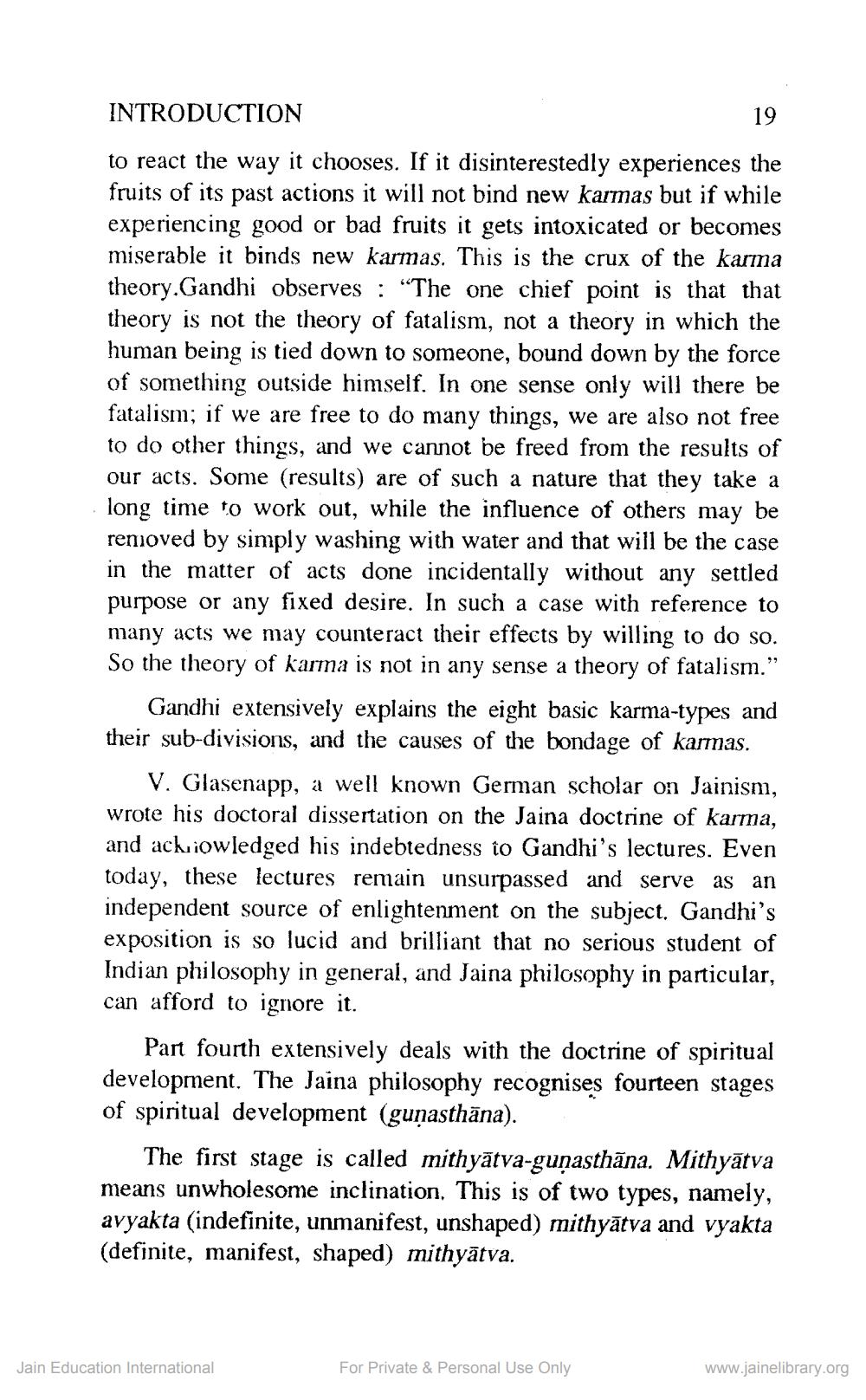________________
INTRODUCTION
19 to react the way it chooses. If it disinterestedly experiences the fruits of its past actions it will not bind new karmas but if while experiencing good or bad fruits it gets intoxicated or becomes miserable it binds new karmas. This is the crux of the karma theory.Gandhi observes : “The one chief point is that that theory is not the theory of fatalism, not a theory in which the human being is tied down to someone, bound down by the force of something outside himself. In one sense only will there be fatalism; if we are free to do many things, we are also not free to do other things, and we cannot be freed from the results of our acts. Some (results) are of such a nature that they take a long time to work out, while the influence of others may be renioved by simply washing with water and that will be the case in the matter of acts done incidentally without any settled purpose or any fixed desire. In such a case with reference to many acts we may counteract their effects by willing to do so. So the theory of karma is not in any sense a theory of fatalism."
Gandhi extensively explains the eight basic karma-types and their sub-divisions, and the causes of the bondage of karmas.
V. Glasenapp, a well known German scholar on Jainism, wrote his doctoral dissertation on the Jaina doctrine of karma, and ack.iowledged his indebtedness to Gandhi's lectures. Even today, these lectures remain unsurpassed and serve as an independent source of enlightenment on the subject. Gandhi's exposition is so lucid and brilliant that no serious student of Indian philosophy in general, and Jaina philosophy in particular, can afford to ignore it.
Part fourth extensively deals with the doctrine of spiritual development. The Jaina philosophy recognises fourteen stages of spiritual development (gunasthāna).
The first stage is called mithyātva-gunasthāna. Mithyātva means unwholesome inclination. This is of two types, namely, avyakta (indefinite, unmanifest, unshaped) mithyātva and vyakta (definite, manifest, shaped) mithyātva.
Jain Education International
For Private & Personal Use Only
www.jainelibrary.org




